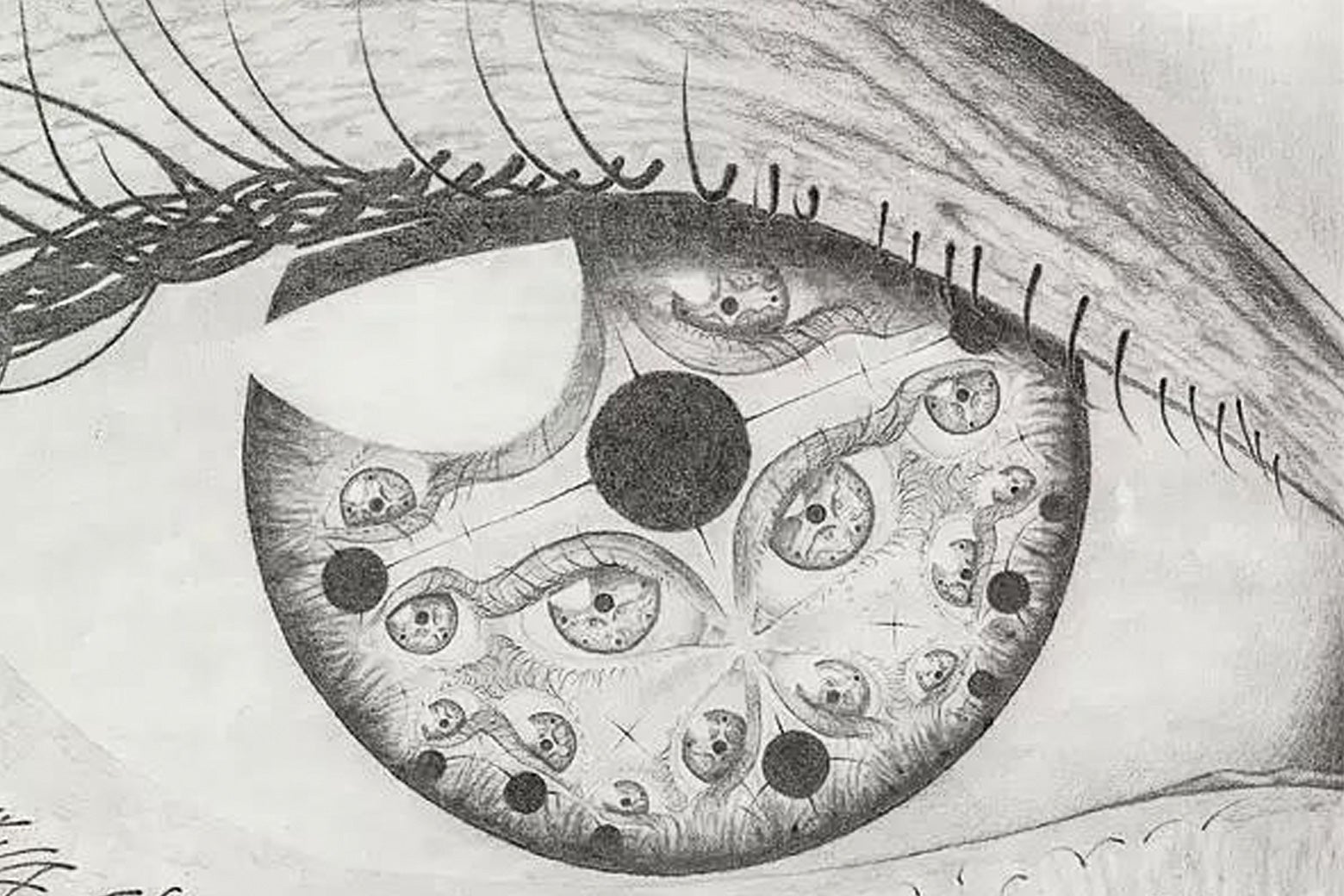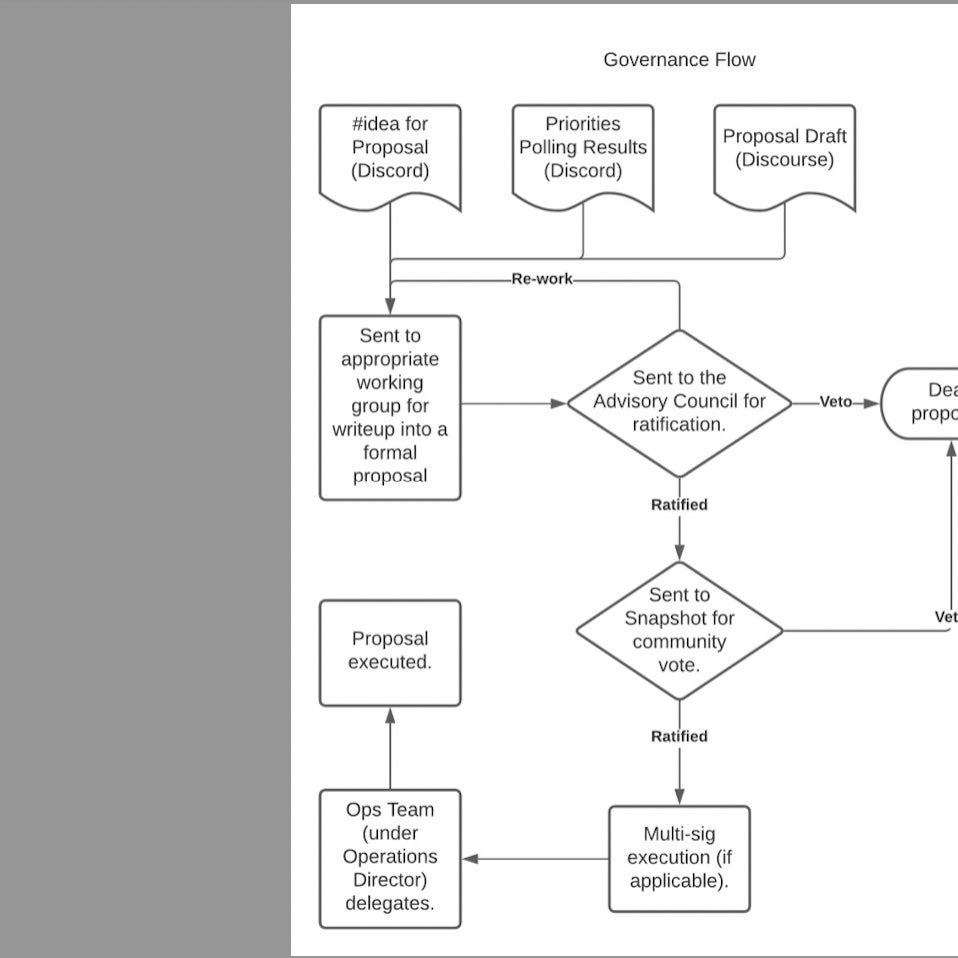Can FreeRossDAO get Silk Road founder Ross Ulbricht out of prison?
Ross Ulbricht has been trying to keep busy. Currently incarcerated in a high-security federal prison in Tucson, Arizona, the man infamous for creating one of the internet’s shadiest marketplaces spends his days reading books about artificial intelligence and physics and writing essays about encryption and blockchain technology. He also meditates, teaches GED classes, and draws dreamlike sketches of his life in prison by pencil. “Decades of incarceration stretch out in front of me,” Ulbricht wrote in a November Medium post. “As I face that future — my eventual old age and death in this cage — I find myself looking for meaning and purpose.”
Advertisement
Ulbricht is currently serving two life sentences plus 40 years for founding and operating Silk Road, a dark web marketplace for drugs, fake driver’s licenses, and other contraband. Silk Road was arguably the first major use case for cryptocurrency, as transactions were conducted with Bitcoin in order to make them harder to trace. Founded in 2011, the site amassed more than $200 million in total sales revenue before the FBI shut it down and arrested Ulbricht in 2013. Prosecutors alleged that at least six deaths were attributable to drugs sold through Silk Road.
Advertisement
Advertisement
Advertisement
Ulbricht’s family, friends, and fans within the cryptocurrency community have helmed a years-long campaign to free him, arguing that the sentence was incommensurate with the crime. “It’s just a horrendously excessive sentence for something where there was no violence involved,” his mother, Lyn Ulbricht, told me recently. A few celebrities have even gotten behind the cause, such as Pussy Riot co-founder Nadya Tolokonnikova. “I ended up in jail for a non-violent crime myself. And I witnessed how people’s lives are being broken in the result of the war on drugs,” she wrote over email. “When I learnt about Ross, it was obvious to me that he does not deserve a double life time, it’s simply unjust.” Despite the persistence of the campaign and the publicity it’s enjoyed, Ulbricht’s case has hit a wall. In 2018, the Supreme Court refused to hear his appeal. Former President Donald Trump also reportedly considered pardoning Ulbricht in the last weeks of his term, but didn’t follow through.
Advertisement
As Ulbricht’s path to freedom has narrowed, there’s now a community of people who think that cryptocurrency, the technology that Ulbricht used to run the site that would land him in prison, could also be the key to finally getting him out. In December, thousands of people joined a Discord server to form the FreeRossDAO. A DAO, or decentralized autonomous organization, is a group that uses shares of cryptocurrency tokens to divide ownership and decision-making among the holders. As the notion of a crypto-powered Web3 has generated hype in recent months, DAOs have been popping up everywhere, for various purposes. Perhaps the most infamous was the ConstitutionDAO, which raised $47 million from 17,000 people late last year in an effort to win a copy of the U.S. Constitution at an auction, only to be narrowly outbid at the last second. Another group known as the SpiceDAO raised funds for a winning $3 million bid on a manuscript for filmmaker Alejandro Jodorowsky’s failed adaptation of Dune in November, though subsequent ambitions to make it into an animated series seem destined to fail due to the members’ evident misunderstanding of copyright law. Crypto evangelists say that DAOs obviate the need for centralized leadership and allow organizations to operate from the bottom up, with everyone’s input. On paper, it sounds like a powerful tool for egalitarian grassroots movements. But can a DAO really free a man from prison?
Advertisement
Advertisement
Advertisement
Like ConstitutionDAO and SpiceDAO, the FreeRossDAO was created to buy an item at auction—namely, a collection of Ulbricht’s drawings. Ulbricht had been mailing drawings to his mother from prison over the years, and she’d also been curating his work from childhood. “I went through boxes that I had saved for years. He was very prolific as a child,” Lyn said. She had been selling the art as posters on the campaign’s website to raise funds, but one of Ulbricht’s supporters soon reached out to recommend that he make an NFT for them. (NFTs are essentially one-of-a-kind tokens that function as certificates of ownership, often for virtual items like digital images, on the blockchain.) The NFT went up for auction at Art Basel Miami in December.
Advertisement

Advertisement
Advertisement
For people who couldn’t just drop millions of dollars on an NFT, the FreeRossDAO was a way to combine funds with others. In exchange for donating to the DAO, contributors would receive a corresponding number of cryptocurrency tokens known as FREE, which function as voting shares for the organization’s subsequent decisions—like what to do with the NFT or the excess funds. The FreeRossDAO ultimately raised $12.5 million and won the NFT for $6.2 million. The profits from the auction will go to paying the lawyers, political consultants, and PR representatives that the Ulbricht family hires, along with his efforts to support kids of incarcerated parents. “To bring this to the forefront of peoples’ minds and to get support, there’s all kinds of expenses involved,” Lyn said. Some of the money is currently sitting in a donor-advised fund while Ulbricht’s close contacts research charities that support the wellbeing of incarcerated individuals.
Advertisement
Advertisement
So Step 1 succeeded: The RossDAO had successfully transferred $6 million to Ross Ulbricht’s family to fund their cause. But what, exactly, was supposed to be Step 2?
After the rush of excitement from winning the auction, the FreeRossDAO was in the awkward position of figuring out what to do next. The DAO’s manifesto spells out three goals: “1. We will help Free Ross. 2. We will advance prison reform. 3. We will share Ross’s work with the world and give everyone a unique opportunity to own a piece of it.” At the moment, the DAO is trying to figure out exactly how it can continue trying to do all that. “To be honest, we had a tremendous amount of momentum purchasing the NFT, and then the momentum slowed down a lot,” said René Pinnell, one of Ulbricht’s childhood friends who now serves as the “operational lead” for the DAO. “The FreeRossDao is different from most in that there’s a real human’s life at stake, and we want to be very thoughtful and very careful with the actions that we take.”
Advertisement
Advertisement
To generate ideas for what to do with the $6 million that the DAO has left over, Pinnell and other administrators have been perusing the Discord’s chats and polling members for initiative ideas. There are working groups—a treasury, NFTs, media/marketing, operations—in which members draft proposals based on their specialties. These proposals then go through an approval process that’s somewhat reminiscent of how a bill becomes a law. Pinnell first brings the proposal to an advisory council, consisting of Ulbricht’s mother, fiancé, lifelong friend, and lawyer. A nay vote from two or more of them results in a veto. “They’re really just there to make sure that we don’t do anything reckless, because they’re the ones who know the case and know Ross better than anyone else,” said Pinnell. If approved, the proposal goes up for a vote among the coin holders. Some of the upcoming proposals include funding a documentary series about Ulbricht, donating to criminal justice reform charities, and selling NFTs from the art of other prisoners. Both Pinnell and Lyn told me that they think Ulbricht’s best shot at freedom is getting President Joe Biden to grant him clemency, so the DAO has mainly been considering initiatives that will raise awareness about his case.
Advertisement
Advertisement
Advertisement
Advertisement

As with any governance system, certain vulnerabilities are immediately apparent in FreeRossDAO. For instance, members join for a variety of different reasons and may not necessarily be there with the intent of freeing Ulbricht. If you read the Discord chat, there do seem to be some members who are preoccupied with making a profit and obsess over the declining value of the FREE tokens, which are resellable. While DAOs are meant to be decentralized, sometimes an authority has to make executive decisions or guide the group to make sure it stays on track. One way Pinnell does that is by prioritizing proposals that are most in keeping with the goals of freeing Ulbricht and advancing prison reform. “There are a lot of different stakeholders and a lot of different functions in the DAO, and it’s my job to balance those sometime competing concerns and focus the DAO’s energy on proposals and actions that will help Ross,” he said. Another vulnerability is the presence of whales, or people who have bought a huge share of the tokens and thus have outsized voting power. The DAO has seen its share of whales, and Pinnell thinks the issue might be solved with quadratic voting, which involves taking the square root of one’s number of tokens in determining voting power.
Advertisement
Advertisement
While it has some kinks to work out, the people I spoke to still maintain that a DAO is one of the most effective tools for freeing Ulbricht, especially compared to a tradition charity or activist group. “Traditional charities, foundations, trusts, they’re not very easy to engage with. They’re highly centralized and there’s a board of directors that makes all the decisions,” said Pinnell, who added that joining the DAO is easier than joining a charity because it just requires buying some FREE tokens or hopping on the Discord. Tolokonnikova, who is also part of the FreeRossDAO and helped set up its infrastructure, added that DAOs have proven to be more effective fundraising mechanisms. “There’s a little chance to raise over $10 million in just a few days via more traditional resources, not saying it’s impossible, but less likely,” she said.
Advertisement
Lyn admits that she doesn’t “totally understand” cryptocurrency and blockchain, but she’s been counting on the community in her fight to free her son. “Ross is acknowledged by many, many people as a pioneer of the whole cryptocurrency movement,” she said, though she adds that he advised her against buying Bitcoin back when it was cheap due to volatility. (Seeing how much the price has risen, she regrets not investing earlier on.) “We have tremendous support from the cryptocurrency community, because they understand that his intentions were good and that we wanted to bring privacy and freedom of choice monetarily.”
Future Tense is a partnership of Slate, New America, and Arizona State University that examines emerging technologies, public policy, and society.











